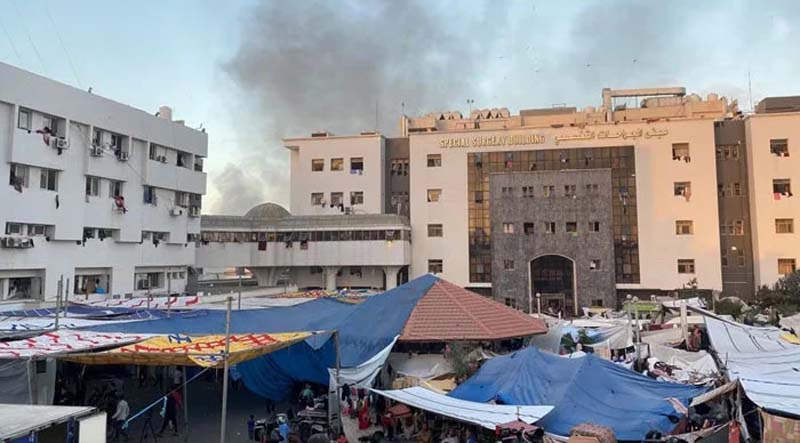GAZA/DOHA (Reuters): The Palestinian Red Crescent accused Israel of firing at a hospital in Khan Younis, as a major advance in the main city in the southern Gaza Strip threatened the few healthcare facilities still open.
The Red Crescent said displaced people were injured “due to intense gunfire from the Israeli drones targeting citizens at Al-Amal Hospital” as well as the rescue agency’s base. The military said it was checking the report.
Nearby in the same city, Israeli tanks were also approaching Gaza’s biggest remaining functioning hospital, Nasser, where people reported hearing shellfire from the west. Residents also reported fierce gun battles to the south.
Israel has launched a major new advance in Khan Younis this week to capture the city, which it says is now the primary base of the Hamas fighters who attacked Israeli towns on Oct. 7, precipitating a war that has devastated the Gaza Strip.
The Gaza health ministry said 142 Palestinians had been killed and 278 injured in Gaza in the past 24 hours, taking the death toll from more than three months of war there to 24,762.
The World Health Organization says most of the enclave’s 36 hospitals have stopped working. Only 15 are partially functioning and those are operating at up to three times their capacity, without adequate fuel or medical supplies, it says.
Israeli officials have accused Hamas fighters of operating from hospitals, including Nasser, which staff deny.
More than 1.7 million people – around 75% of Gaza’s population – are estimated to be displaced, many forced to move repeatedly, according to U.N. Palestinian refugee agency (UNRWA) figures. Many have sought refuge in tents that do little to protect them from the elements and disease.
Among them, Mohammed al-Ghandour wanted to give his bride a beautiful wedding but they had to flee their homes in Gaza City and the couple finally got married this week in a tent city in Rafah, near the Egyptian border, where they now live.


Comments are closed.